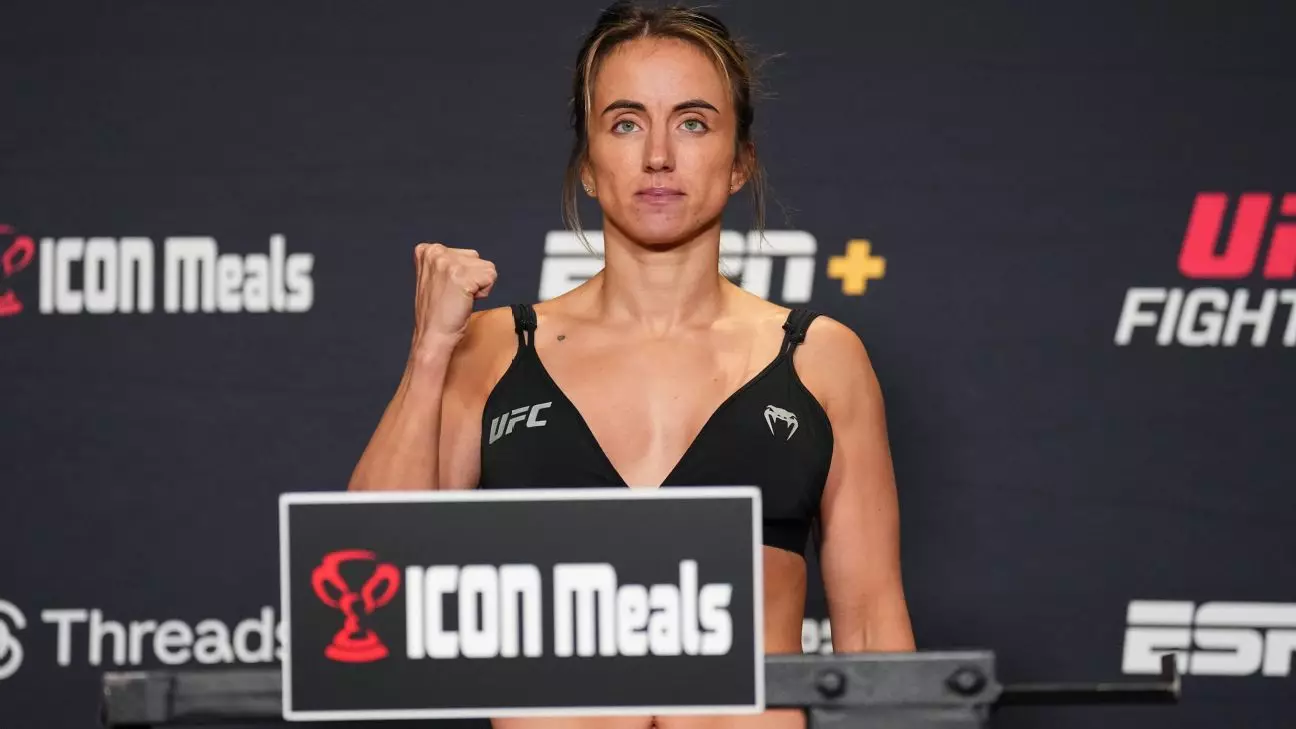In an unexpected twist that shattered the excitement surrounding UFC Fight Night, the main event featuring Maycee Barber and Erin Blanchfield was abruptly canceled moments before the fighters were set to enter the ring. Fans and fighters alike were left stunned when Barber was deemed unfit to compete due to medical concerns, leading to a last-minute reshuffling that left Blanchfield and her supporters in a state of disbelief. The implications of this cancellation extend beyond merely one night of fights; it reverberates through the careers of both competitors and raises questions about fighter safety and the sporting schedule.
The Struggles of Maycee Barber
Barber’s journey to this fight was marred by significant challenges, including a year-long hiatus triggered by injury and a serious illness that required hospitalization for 11 days. Her return was highly anticipated, making this cancellation particularly heartbreaking not just for her, but for all who follow her story and appreciate her resilience. The added complication of her missing weight, coming in half a pound over the limit, only amplified the situation. This situation underscores the physical toll that competing at such an elite level can take on athletes and serves as a cautionary tale about the sacrifices made in pursuit of greatness.
Blanchfield’s Position in the Rankings
For Erin Blanchfield, ranked No. 4 among the women’s bantamweights, this turn of events brings both frustration and opportunity. Having trained intensely for the bout, she was understandably eager to rise through the ranks and secure a shot at the title. However, the abrupt cancellation led her to demand an immediate reassessment of her competitive trajectory. Blanchfield’s resolute desire to engage in a five-round fight with another top contender evidences her ambition, while simultaneously suggesting a certain level of disappointment in the UFC’s handling of unforeseen circumstances.
A Call for Clarity and a Shift in Focus
The unsettling nature of the cancellation sparked calls for improved communication and transparency within the UFC. Blanchfield’s experience—stepping into the cage only to be told the fight was off—reveals a need for better protocols when it comes to fighter health assessments and timely disclosures. Furthermore, her decision to reject the idea of pursuing a rematch with Barber, instead focusing on new challenges, highlights the competitive mentality that drives fighters. Such a shift not only reflects Blanchfield’s readiness to move forward but also showcases a growing trend in the industry where fighters prioritize their own paths over rivalries.
The Future of the Fight Card
This unexpected blow to the UFC Fight Night card raises broader questions about the organization’s ability to manage fighter health and scheduling. As MMA continues to grow in popularity, ensuring the safety of athletes must remain paramount. The cancellation may serve as a wake-up call that leads to more stringent medical evaluations and better preparations in the face of uncertainties, ensuring fans receive the electrifying bouts they crave and fighters remain healthy and safe. The UFC may need to rethink how they handle such disruptions, ensuring that fighters like Barber and Blanchfield have the opportunity they deserve to showcase their talents without getting sidelined by circumstances beyond their control.


Leave a Reply